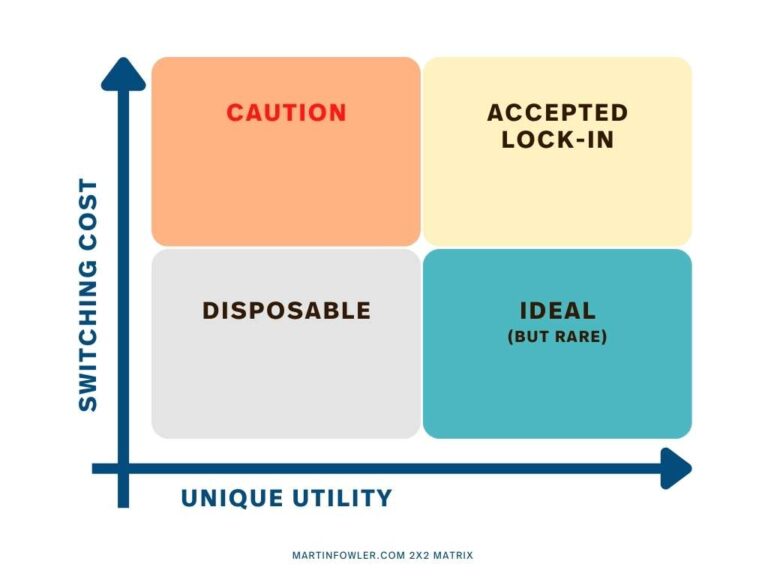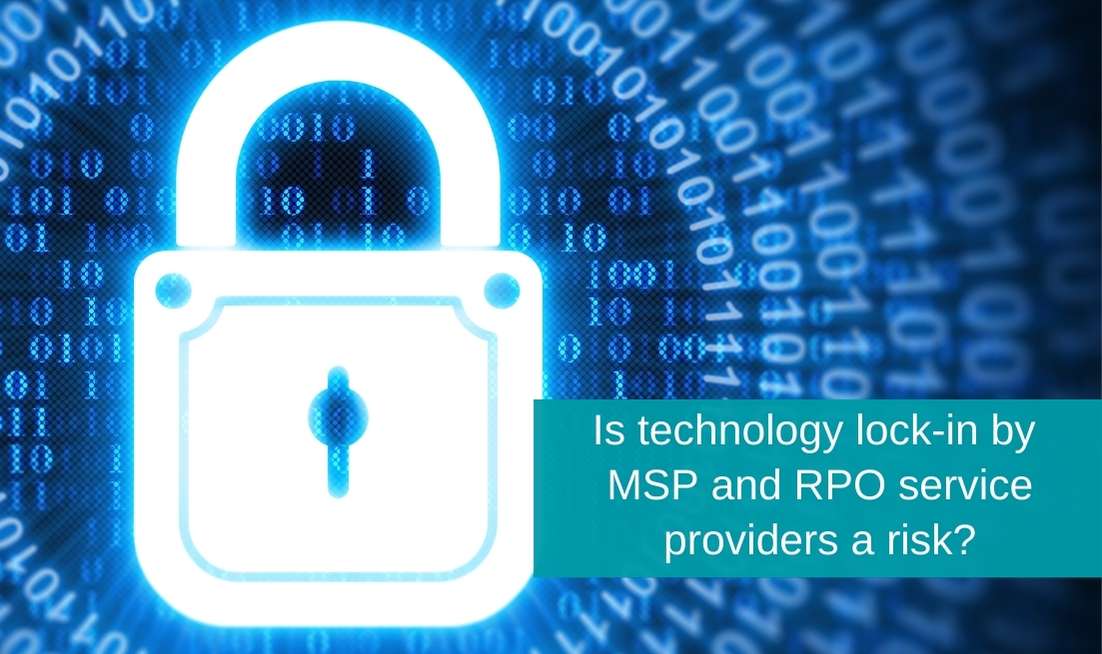In the recruitment and talent acquisition processes, we see more and more new software applications and technologies, featuring artificial intelligence, predictive analytics and machine learning. As a result MSP and RPO service providers are investing heavily in partnerships with innovative new technology providers, in building their own technology stack or in acquisitions. Recent examples are the acquisition of ProUnity by Headfirst and the ‘Services Procurement 360 tool’ that Randstad Sourceright and Deployed developed together.
Most of these new technological developments can be deployed on their own and added to existing processes. They do not require significant changes to core talent acquisition applications, like a VMS and ATS. More and more often we see that MSP and RPO providers integrate such technology into their core application stack.
Companies that have outsourced their recruitment or contingent workforce management to MSP or RPO providers run the risk of a complete lock-in as a result of these developments. But there are a number of ways to avoid that risk.
Direct contracts
Contract the technology provider(s) directly, separate from the service provider. This makes the organisation completely independent of the service provider and allows it to change service providers without affecting the technology used. This approach is usually highly dependent on the internal IT agenda and strategy.
Indirect contracts
Let the RPO or MSP service providers contract the technology provider, with the possibility to take over these contracts, at any time, under the same commercial and operational conditions (SLA’s etc.). The disadvantage of this way of contracting is that the contract with the service provider can be extensive, as the agreement between service provider and technology provider must be included in the contract. But this approach offers the same freedom to change service provider as with direct contracting
Contracts with service providers
All technology, including external contracts, are the sole responsibility of the service provider. Advantage of this approach is that the service provider is free to select the tools they need for successful service provision and added value. However, if the design of an integrated hiring manager process is complex or involves many integrations, it can be associated with significant lock-in risk and cost.
As MSP and RPO services become increasingly dependent on underpinning technologies, provided (or owned) by the service providers, the risk of lock-in increases. That is why it is important to carefully weigh the risk of a lock-in against the opportunities gained by using these technologies.
A useful method to weigh the opportunities of a technology against lock-in costs is provided by Martin Fowler, in the form of a 2×2 matrix with ‘switching costs’ (lock-in risk) on one axis and ‘unique utility’ (new opportunities) on the other axis. By plotting your decisions onto this simple 2×2 matrix, you can visualise technology choices and support decisions in the way the technology stack will be deployed and contracted.

If an organisation has become dependent on the technology used, the impact can be significant. They lose the ability to renegotiate prices and get better service or innovation from the technology stack. The service provider knows that they are not likely to leave. That’s why we recommend evaluating your technology approach before going to market with a tender for an RPO or MSP programme.
Could you use support designing your technology strategy? Or would you like a review of your current approach? Please feel free to reach out.
 About the author
About the author
Ron Bosma is Managing Partner at TalentIn. With more than 30 years in the industry his expertise helps organisations build and execute their workforce strategy, making sure that what is designed can be implemented.
TalentIn has extensive national and international experience in developing and improving strategies for the recruitment of your permanent and temporary staff including the underlying technologies. We know how these strategies can be designed and implemented successfully. We advise, but can also provide practical support. Are you interested? Please contact us for an appointment without obligation via www.talentin.eu, info@talentin.eu or +31103075422.





